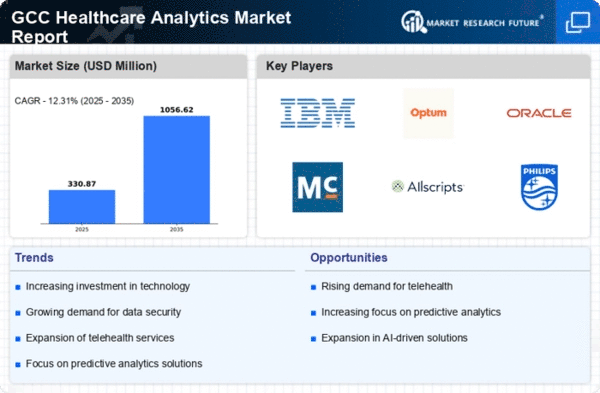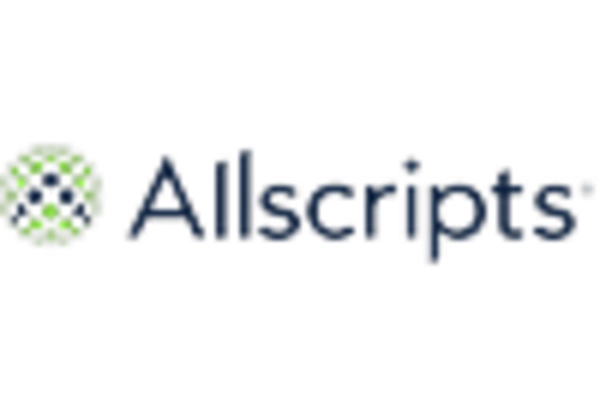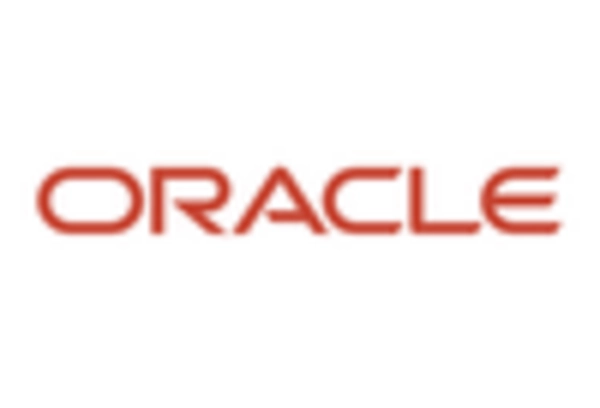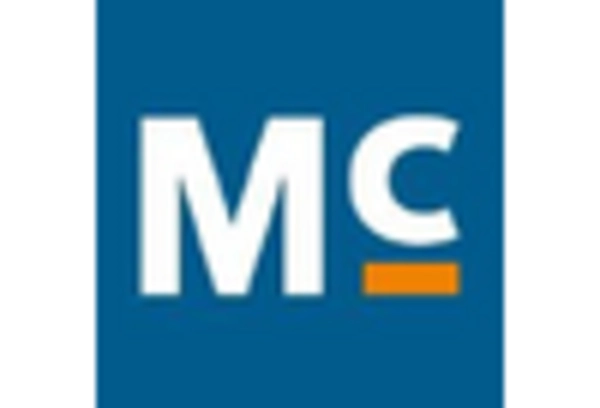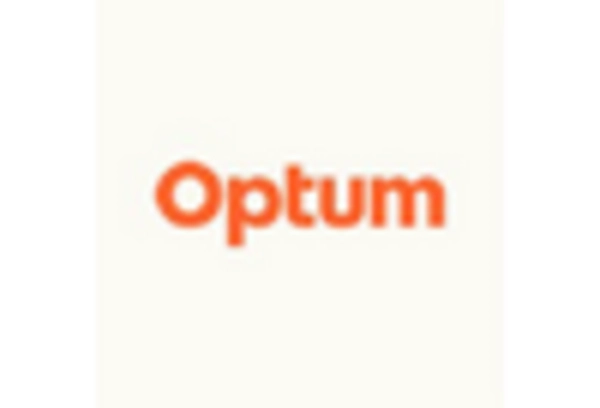Emergence of Big Data Technologies
The emergence of big data technologies is reshaping the landscape of the healthcare analytics market in the GCC. With the exponential growth of healthcare data generated from various sources, including electronic health records and wearable devices, the need for robust analytics solutions has become paramount. The market is projected to grow at a CAGR of 22% as organizations seek to harness big data for improved patient care and operational efficiency. By leveraging big data analytics, healthcare providers can gain valuable insights into patient behavior and treatment efficacy, ultimately enhancing the quality of care delivered. This trend underscores the critical role of big data in driving advancements within the healthcare analytics market.
Government Initiatives and Investments
Government initiatives aimed at enhancing healthcare infrastructure in the GCC are significantly influencing the healthcare analytics market. Various national health strategies are being implemented to promote the adoption of digital health technologies, including analytics solutions. For instance, the Saudi Vision 2030 and the UAE's Health Strategy 2021 emphasize the importance of data analytics in improving healthcare services. These initiatives are expected to lead to an increase in public and private sector investments, potentially exceeding $1 billion in the next few years. Such financial backing is likely to accelerate the development and deployment of healthcare analytics tools, thereby fostering innovation and growth within the market.
Growing Focus on Preventive Healthcare
The healthcare analytics market is witnessing a growing focus on preventive healthcare measures within the GCC. As healthcare providers aim to shift from reactive to proactive care models, analytics tools play a crucial role in identifying at-risk populations and predicting health outcomes. This proactive approach is anticipated to reduce healthcare costs by up to 30% through early intervention and management of chronic diseases. Consequently, healthcare organizations are increasingly investing in analytics solutions to enhance their preventive care strategies. This trend not only improves patient health outcomes but also drives the demand for advanced analytics capabilities, thereby propelling the growth of the healthcare analytics market.
Increased Adoption of Telehealth Services
The rise of telehealth services in the GCC is significantly impacting the healthcare analytics market. As more patients opt for remote consultations, healthcare providers are utilizing analytics to monitor patient data and outcomes effectively. This shift is expected to lead to a 40% increase in the use of analytics tools specifically designed for telehealth applications by 2027. The ability to analyze data from telehealth interactions allows providers to enhance patient engagement and tailor treatment plans accordingly. Consequently, the integration of analytics into telehealth services is likely to drive innovation and growth within the healthcare analytics market.
Rising Demand for Data-Driven Decision Making
The The healthcare analytics market is experiencing a notable surge in demand for data-driven decision making across the GCC region. is experiencing a notable surge in demand for data-driven decision making across the GCC region. Healthcare providers are increasingly recognizing the value of leveraging data analytics to enhance operational efficiency and improve patient outcomes. This trend is evidenced by a projected growth rate of approximately 25% in the adoption of analytics solutions by healthcare organizations in the GCC by 2026. As healthcare systems strive to optimize resource allocation and streamline processes, the integration of advanced analytics tools becomes essential. This shift towards data-centric strategies not only aids in clinical decision-making but also supports financial management, thereby driving the overall growth of the healthcare analytics market.


